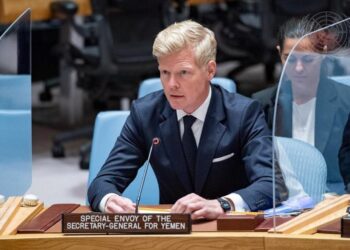As the reported death toll of the Israeli invasion of Gaza tops 22,000, senior Israeli politicians have grown more explicit in their goal for the Palestinian enclave: the movement of a large number of Gazans out of Gaza entirely.
The rhetoric has garnered charges of ethnic cleansing and forced displacement, and a rare rebuke from U.S. officials. But there are no signs of the calls losing steam within Israel.
The idea of ‘transferring’ Palestinians from their lands has a long and controversial history in Israeli politics, dating back to the founding of the state in 1948, when hundreds of thousands of Palestinians were expelled or fled during the war.
Since then, various Israeli leaders have proposed or implemented policies of ‘transfer’, such as annexing parts of the occupied West Bank, building illegal settlements, demolishing Palestinian homes, revoking residency rights, and imposing restrictions on movement and access.
But the latest proposal to ‘transfer’ Gazans is unprecedented in its scale and brutality, as it comes amid a devastating military assault that has killed thousands of civilians, including children, and destroyed much of the infrastructure and services in the besieged territory.
The proposal was first voiced by Gideon Saar, a former minister and a rival of Prime Minister Benjamin Netanyahu, who said that Israel should “encourage the emigration” of Gazans to other countries, and offer them “economic incentives” to do so.
Saar’s remarks were echoed by other prominent figures, such as Naftali Bennett, the leader of the right-wing Yamina party, who said that Israel should “cut off the heads” of Hamas, the Palestinian group that controls Gaza, and “create a reality where life in Gaza becomes unbearable”.
Another supporter of the proposal was Avigdor Lieberman, the leader of the secular nationalist Yisrael Beiteinu party, who said that Israel should “conquer Gaza and eliminate Hamas”, and then “relocate” the population to other Arab countries, such as Egypt or Jordan.
The proposal was also endorsed by some media outlets, such as the Jerusalem Post, which published an editorial titled “Transfer is not a dirty word”, arguing that “the only way to ensure long-term quiet on the Gaza border is to encourage the mass emigration of Gaza’s residents”.
The proposal, however, was met with fierce criticism and condemnation from Palestinian officials, human rights groups, and international actors, who denounced it as a violation of international law and a crime against humanity.
#GazaUnderAttack
The Palestinian Authority, which governs parts of the West Bank, said that the proposal was “a continuation of the Nakba”, the Arabic term for the catastrophe of 1948, and “a clear expression of the racist and colonial nature of the Israeli regime”.
The Hamas movement, which has been engaged in a fierce resistance against the Israeli invasion, said that the proposal was “a declaration of war” and “a desperate attempt to break the will of our people”.
The UN human rights chief, Michelle Bachelet, said that the proposal was “unacceptable” and “would likely amount to a forcible transfer of population”, which is prohibited under the Geneva Conventions and constitutes a war crime.
The U.S. State Department, which has been trying to broker a ceasefire between Israel and Hamas, said that the proposal was “deeply concerning” and “contrary to our values and interests”. It also urged Israel to “do more to avoid civilian casualties” and “respect the dignity and rights of Palestinians”.
The proposal has also sparked outrage and protests among Palestinians and their supporters around the world, who have taken to the streets and social media to express their solidarity with Gaza and their rejection of the Israeli plan.
Many have used the hashtag #GazaUnderAttack to share images and videos of the Israeli bombardment and the Palestinian suffering, and to call for an end to the aggression and the occupation.
Others have used the hashtag #SaveSheikhJarrah to highlight the plight of the Palestinian families in East Jerusalem who are facing eviction and displacement by Israeli settlers, which was one of the triggers of the current escalation.
Some have also used the hashtag #FreePalestine to demand the recognition of the Palestinian right to self-determination and statehood, and the implementation of the UN resolutions and the international law.
The proposal to ‘transfer’ Gazans out of Gaza is not only a moral and legal outrage, but also a strategic and political folly. It will not bring peace or security to Israel, but only more hatred and violence. It will not solve the Palestinian problem, but only exacerbate it. It will not end the conflict, but only prolong it.
The only way to achieve a just and lasting solution is to end the Israeli occupation and oppression of the Palestinian people, and to respect their rights and aspirations. This is the only way to ensure the dignity and freedom of both peoples, and the stability and prosperity of the region.







